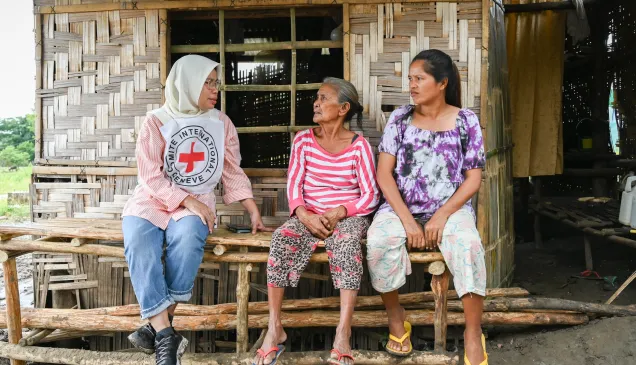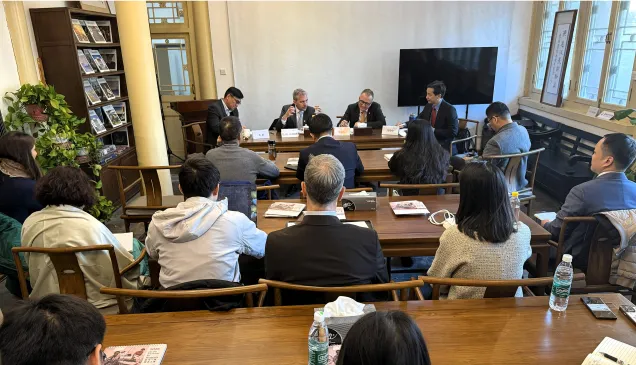Georgia / South Ossetia: Home is where hope dwells
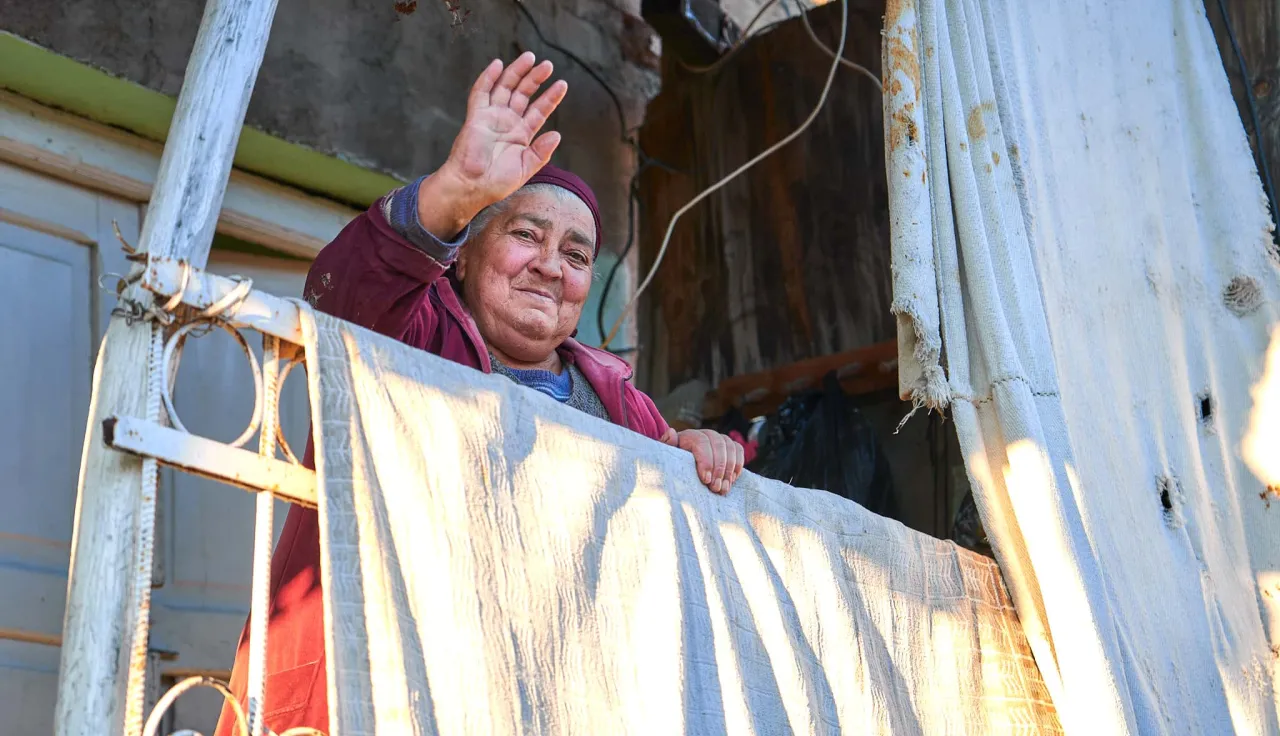
Home is where you feel safe. For many elderly and disabled people in remote villages of South Ossetia, their home is the only certainty they have. The armed conflicts in the 1990s and 2008 scarred and depopulated their communities. Younger people have left in search of other economic opportunities.
As those that remain grow older or need more permanent care and support, more individuals become isolated from their communities, especially in the long difficult winters. A warm place in their homes helps keep them alive – it is where hope dwells.
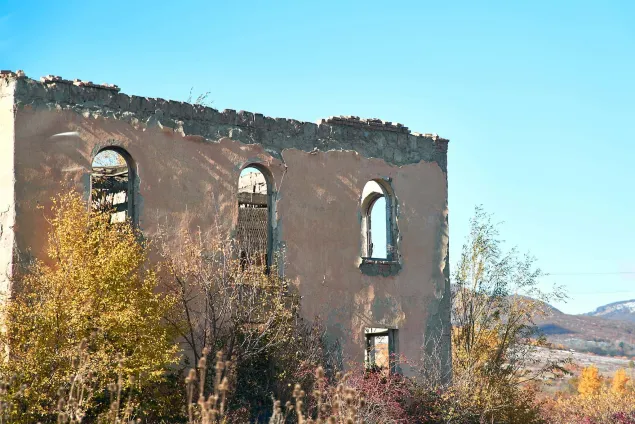
Signs of past hostilities are still visible in rural areas of South Ossetia.
Many of elderly, disabled or people with a low income in conflict affected communities face difficult living conditions daily. Since 2022, the ICRC has been helping vulnerable people in villages in South Ossetia to keep warm. To complement the regular quarterly support of food and essential household items, the ICRC began to renovate or insulate a room in an existing home or install a trailer where the house cannot be repaired to improve their living conditions. Here are some of the stories of the 35 people we have been able to assist so far.
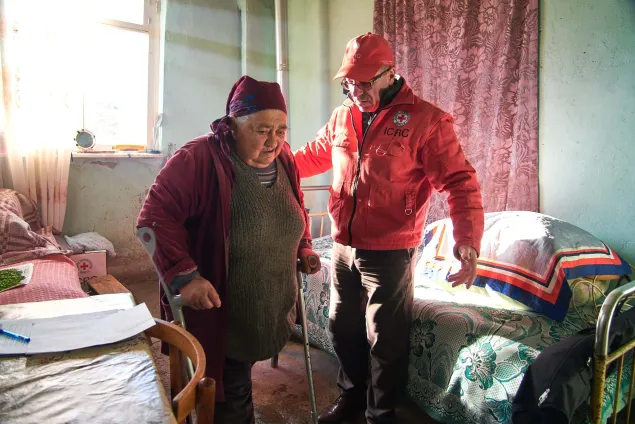
The ICRC regularly visits Manana in the village of Satskhenet/i to support her with food and other essentials
Manana (75) lives alone in the remote village of Satskhenet/i which was affected by the conflict in 2008. She inherited her home from her parents whom she cared for until their deaths in 2011 and 2014. She struggles to maintain her health and the absence of anyone else who can assist her to face the challenges in her life.
The story of Manana
The house she lives in has gradually became dilapidated and is desperately cold in winter. The ICRC helped Manana have one room in her house insulated and renovated, so that she can stay warm in winter.
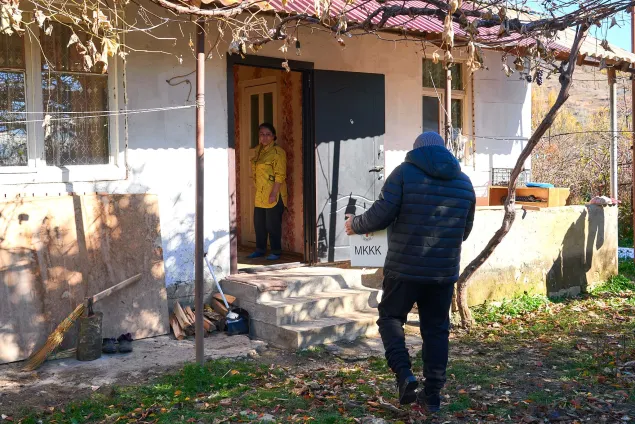
Apart from a room renovated at her house, Lali (51) receives quarterly assistance of food and hygiene items.
Lali (51) has also stayed alone in her parents’ house in the village of Ksuis/i with a handful of other residents, all advanced in their age. Absence of work opportunities and regular public transport have not prevented Lali from staying in her community. She recalls her happy childhood with both parents, siblings and cousins. They were a joyful family with a tradition of gathering for large feasts and sharing what is happening in their lives. Her newly painted and neat room is decorated with old photos reminding her of happy moments.
The story of Lali
Raya (60) lives in the village of Tsorbis/i with her two disabled sons who are in their twenties. The family’s income cannot meet the needs of three adults. The ICRC assists them by providing food and hygiene parcels quarterly, as well as firewood and a stove. She received two trailers from the ICRC to accommodate her family in this remote village.
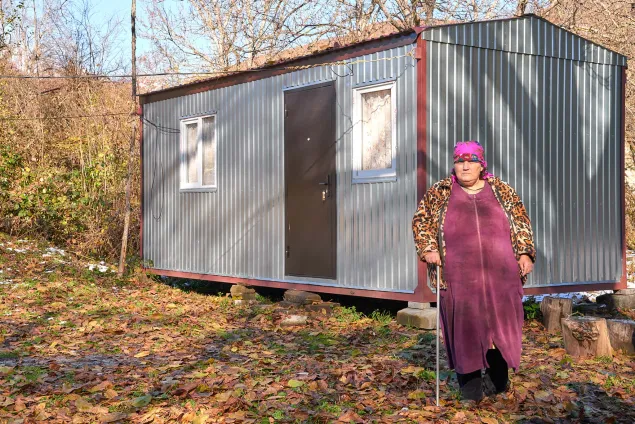
Raya (60) in front of the trailer installed by the ICRC.
Zalina (35) lives in a remote village of Ikort/i in a neighborhood of a dozen other families. Her three small children and disabled spouse had no place to live, and the ICRC has provided them with a trailer. The family has been receiving support in the form of food and essential household items from the ICRC since 2020. The family has tried settling in North Ossetia, but they were unable to due to Zalina’s husband’s disability. From her trailer and with her family close by, Zalina attends her small henhouse.
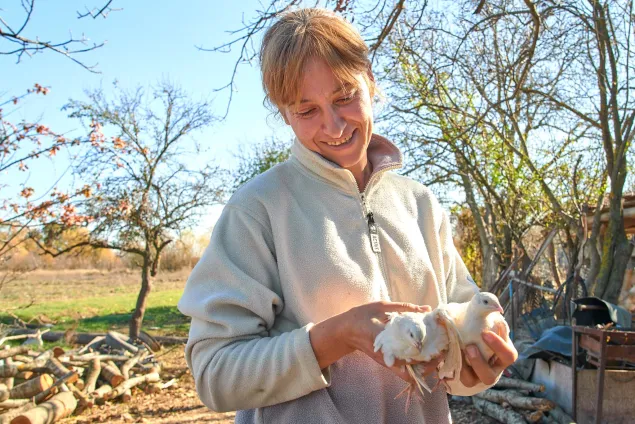
Zalina (35) is taking care of her family and a small hen house.
Venera (80) in the village of Kornis/i is lonely and needs permanent care. Through the domestic support program, ICRC staff visit her once a week to provide in-home care. She happily shares the news that some of her relatives helped her with wallpapers and minor refurbishment at her newly received trailer.
The story of Venera
Sona (64) lives with her spouse in the village of Arknet/i. The couple have been receiving food and hygiene parcels within the ICRC’s quarterly social safety network program. This support helps the family so save their very limited income for medicines and other essentials.
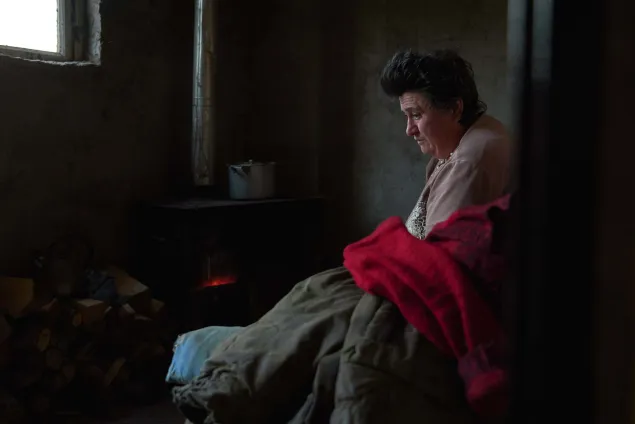
Sona (64) is warming herself at the stove in her house.
Their living conditions made it impossible to fully benefit from the firewood distributed to them annually by the ICRC ahead of heating season. Therefore, the ICRC has renovated and insulated one room in their house to ensure that the couple stay warm during long and cold winter evenings.
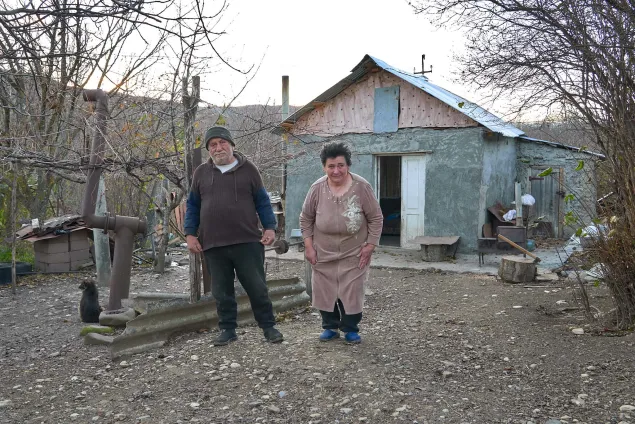
Sona and her spouse in their garden where they grow beans and apples to support their small household.
Inal (47) lives in the village of Kornis/i. He lost his house in a fire accident four years ago. He is unemployed, living with a disability and survives with an income from occasional manual work he does for his neighbours. After the fire accident, he addressed the district and central authorities for materials to help rebuild the house. The required assistance was unavailable at the time locally due to scarce resources. Inal decided to seek the ICRC’s support after hearing of the activities through talking to his neighbours. To address his needs, the ICRC has provided him with a trailer.
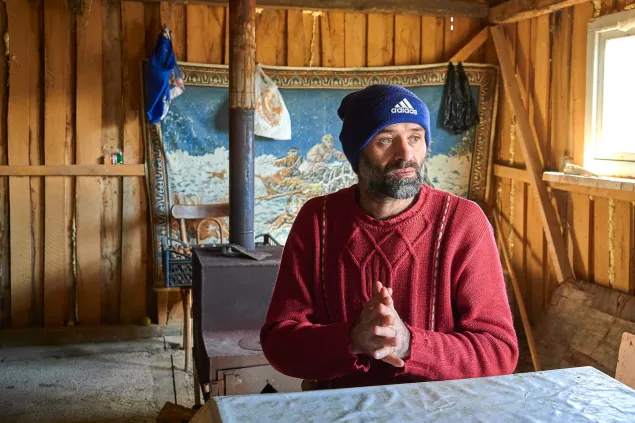
Inal (47) in his makeshift shed.
The ICRC has been active in the region since the 1990s where the population was affected by the armed conflicts in the 1990s and in 2008 . Following the end of the conflict, the ICRC assisted the population through its emergency relief distributions of food and other essential items. Throughout the years, the ICRC has adapted its approach and is now addressing the most pressing needs and long-standing consequences of the armed conflicts. Assistance is provided to the most vulnerable – the elderly and disabled – includes quarterly distributions of food and hygiene parcels, yearly firewood distributions and domestic support.
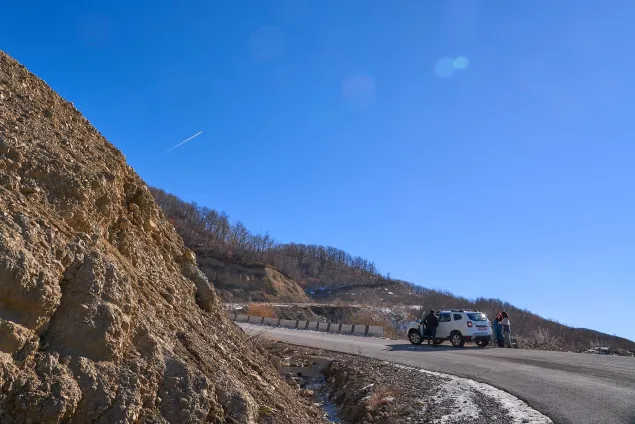
The ICRC team on their way to remote areas in South Ossetia.

